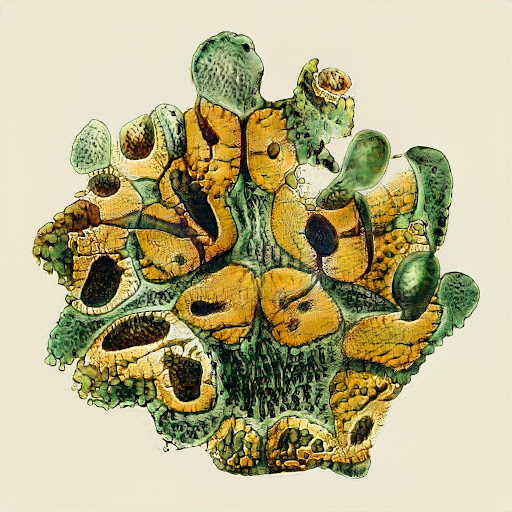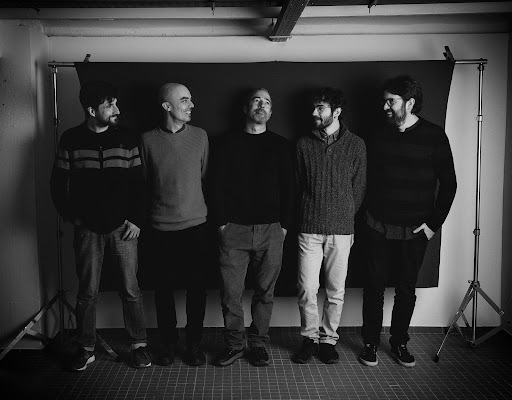Syllabus⇝
The first part of the seminar is a collaborative learning experience designed to engage participants in a critical exploration, analysis and storytelling of Artificial Intelligence systems, the main impacts of its applications and implications in design practices. Participants will decode dominant AI narratives from the perspective of Social-Ecological-Technological Systems theories and learn about the limits of digitalization and datifcation in the context of the current state of climate emergency.
The course approach combines a curated set of inputs through lectures, in-class screenings, debates and group readings alongside a design fiction lab track that enables participants to work collaboratively in small groups in a creative research experiment to digest, process and share their learnings that will be used in the second part of the seminar.
The second part of the seminar will be focused on AI and contemporary visual culture. With a practical approach, and by learning some techniques and tools, part of the concepts learnt on the first part will be applied.
A speculative experiment will be developed by the students in small groups during the seminar and will be presented at its end.
Learning objectives⇝
- Develop a basic and multidimensional understanding of AI, from its origins as a scientific discipline and its philosophical connotations to how AI systems work and are being used today in a wide range of contexts.
- Develop a critical understanding of the socio-economic, socio-technical, and socio-ecological aspects of AI systems, alongside the ethical, social, environmental and cultural implications emerging from their use at scale.
- Learn to use technical tools to run some AI programs.
- Understand the current proposals in designing with/for Extended Intelligence.
Schedule⇝
Andrés Colmenares
9:30-13:30
- Introduction + lecture: Critical Introduction to AI systems, narratives and imaginaries in a state of climate emergency
- Design Fiction Lab: Introduction and briefing
Andrés Colmenares
9:30-13:30
- Lecture: Materiality of the digital infrastructures
- Design Fiction Lab: Research and ideation
14:30-18:30
- Guest lecture: Temporality of AI by Gustavo Nogueira de Menezes (together with MaCT)
Andrés Colmenare
9:30-13:30
- In-class screenings + debate on AI impacts: from data centers to human rights
- Design Fiction Lab: Experiment proposals
Estampa
9:30-13:30
- Situated IA introduction
- Presentation of Estampa's projects
- Intro to the working environment.
- Student work/Support
Estampa
9:30-13:30
- Student presentation of exercise (Datasets)
- Theoretical and practical technological concepts. How do these technologies work? How to use them beyond the web interface?
- Using AI services through APIs and with libraries
- Student work/Support
Estampa
9:30-13:30
- Latent/Multidimensional/Embedding spaces
- Student work/Support
Estampa + Andrés Colmenares
9:30-13:30
- Student work/Support
- Students presentation of projects
- Feedback + self-assessment
Methodological Strategies⇝
Lectures, workshops, project-based learning and team-based learning
Deliverables⇝
Project presentation
Document containing: - Project name - Group members - Project description and contextualization - Software + Hardware used or built or their specifications
Grading Method⇝
| Percentage | Description |
|---|---|
| 25% | Self-assessment |
| 50% | Project |
| 25% | Personal Reflections |
European Credit Transfer and Accumulation System (ECTS)
3 ECTS
Additional Resources⇝
Alpaydin, E., 2016. Machine Learning. The new AI. Cambridge, Massachusetts: the MIT Press.
Bridle, James: New Dark Age: Technology and the End of the Future. London: Verso, 2018
Bridle, James: Ways of Being. Allen Lane / Penguin, 2022
Crawford, K., 2021. The Atlas of AI: Power, Politics, and the Planetary Costs of Artificial Intelligence. Yale University Press.
D’Ignazio, C., Klein, L. F. (2020). Data Feminism. The MIT Press
Joler, V., Pasquinelli, M., 2020. Nooscope.
Kogan, G., 2016. Machine Learning for Artists (Collection of free educational resources). Github.
Miller, A., 2019. The Artist in the Machine: The World of AI-Powered Creativity. Cambridge, Massachusetts: The MIT Press.
O’Neil, C., 2016. Weapons of Math Destruction. How Big Data Increases Inequality and Threatens Democracy. UK: Penguin Random House.
Paglen, T., 2016. Invisible Images (Your Pictures Are Looking at You). The New Inquiry. Brooklyn.
Sautoy, M., 2019. The Creativity Code: How AI Is Learning to Write, Paint and Think.
Sinders, Caroline: Feminist Data Set, 2020
Steyerl, Hito, 2012. The Wretched of the Screen.
Steyerl, Hito: "Mean Images", New Left Review, 140/141, March-June 2023
Vickers, Ben; Allado-McDowell, K: Atlas of Anomalous AI. Ignota Books, 2020
Faculty⇝
Andres Colmenares (CO/ES) is the co-founder of IAM, the creative research and strategic design lab helping citizens and organisations make responsible decisions by using futures as tools to anticipate challenges and opportunities, while exploring the socio-ecological impacts of digital technologies and the internet(s) through collective learning initiatives, partnerships and commissioned projects. He is also strategic advisor for WeTransfer’s Supporting Act Foundation, director of the Master in Design for Responsible Artificial Intelligence systems at ELISAVA and faculty member of the Master in City & Technology at IAAC.
Pau Artigas is an Interactive Web Developer at Taller Estampa. Estampa is a collective of programmers, filmmakers and researchers, with a practice based on a critical and archaeological approach to audiovisual and digital technologies. Since 2017 they have developed an important amount of work focused on the uses and ideologies of AI, an interest that started with a project programmatically entitled The Bad Pupil. Critical pedagogy for Artificial Intelligences (2017-2018).


